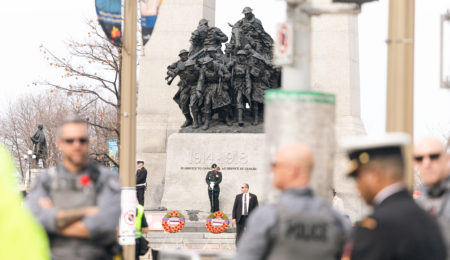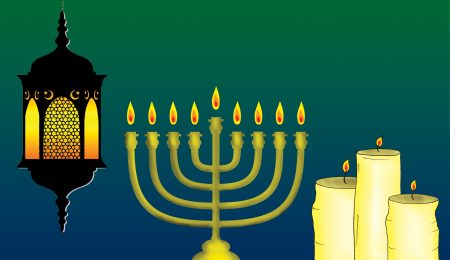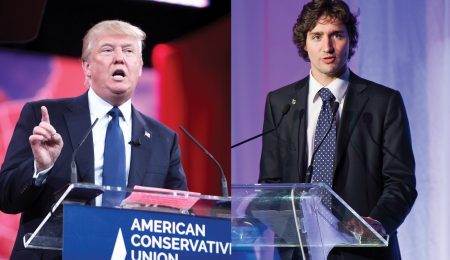Antisemitism vs. anti-zionism: are they really the same? U of O’s silence in the midst of student outrage.
I attended the “Antisemitism: Face It Fight It” conference hosted by the Centre for Israel and Jewish Affairs (CIJA) on October 17th. The two-day event featured speakers from various backgrounds, including journalists, activists, politicians, and young Jewish and Israeli individuals. As a Jewish student at the University of Ottawa, I saw this as an opportunity to engage with the Canadian Jewish community and gain insights from the panelists.
The highlight of the conference on Tuesday included a cocktail reception with elected officials and keynote speeches from Canada’s political party leaders, such as Prime Minister Justin Trudeau, Conservative party leader Pierre Poilievre, New Democratic Party leader Jagmeet Singh, and the Bloc’s leader Yves-François Blanchet. The discussions primarily revolved around pro-Israel perspectives and the importance of Canadian Jews understanding the Israel-Palestine situation but from a solely Israeli perspective.
Notably, Israeli Ambassador Iddo Moed addressed the audience, expressing concerns about what he termed “misinformation” regarding the Israeli Defense Forces’ siege of Gaza throughout the past month.
During the event, Gil Troy, a prominent Zionist thinker, introduced the idea that the latest “form of hatred toward Jews is anti-Zionism rather than antisemitism.” This concept challenged my understanding, as I have always separated the two. I have never considered myself a “Zionist,” so when people would address “anti-zionists”, I would not take this as an attack on my Jewish identity.
Growing up, I was aware that some Orthodox Jews actually opposed Zionism due to their interpretations of the Torah, suggesting that Israel should only exist through divine intervention rather than as a nation-state created by humans. This opinion varies, and I always found it understandable. But now, we are seeing Orthodox Jews get attacked by the Israeli police force and the Jewish communities around the world for participating in anti-Zionist protests. Is this not a case of antisemitism by a so-called “defensive” military superpower?
I got a chance to speak with NDP leader Singh, who acknowledged the concerns of Jewish and Arab students feeling ‘unsafe’ on Canadian campuses. He noted, “some students are afraid to display their Jewish identity, just as there is a rise in Islamophobia on campus.” While browsing social media, I witnessed several Muslim students post about their experience walking past a pro-Israeli rally, where they were spat on and denounced. Several of my Jewish peers on campus have gotten harrassed for “supporting” Israel’s atrocities, including myself, insinuating a close association with Zionism. I am not Israeli nor have I ever lived there, yet somehow I am lumped into this because of my Star of David necklace.
When I asked how we could create safe spaces in schools for students, he mentioned the importance of allowing people to “discuss human rights, be proud of their Israeli or Jewish heritage, and express their concerns without fear of discrimination.” But how is this possible when our university has stayed relatively silent throughout all of this?
Given the divisions among young Arab and Jewish Canadians, I pondered the role Canada should play, especially regarding the NDP’s rise in popularity among the youth. Singh expressed “[the NDP’s] commitment to a peaceful resolution” and suggested that “Canada, as a soft power nation with experience in conflict resolution, could contribute to achieving peace.”
I also had the opportunity to meet with Prime Minister Trudeau, who expressed his concerns for the Jewish Canadian community during his speech and “condemns Hamas’ attacks on innocent Israeli civilians.” He also acknowledged the dire humanitarian situation in Gaza, caused by the Israeli government’s actions following the outbreak of hostilities. Poilievre, representing the Conservative Party, expressed support for Israel and the Jewish communities during this “dark period.”
Pro-Palestinian protesters outside of the venue explained that “[we] are protesting CIJA specifically because it has…equated anti-Zionism with antisemitism…we have Jewish allies, such as the progressive organization Jewish Voice for Peace, who oppose the Zionist occupation.” They also mentioned the explosion of the Al-Ahli Arab Hospital on October 17th, which at the time, had no confirmed statistics. Although this was later contested by many Western superpowers as being a non-Israeli attack, the protestors stated “this wouldn’t be the first time they’ve bombed a hospital in Gaza.”
The protesters scrutinized media coverage and urged people to “avoid blindly accepting the narrative presented by any party involved.” They questioned the “media’s willingness to believe military sources over civilian accounts” and called for a more balanced approach.
In such a sensitive situation, it is essential to recognize that people worldwide are affected — but not as affected as the civilians currently living in Gaza. As a Jewish woman, I am deeply concerned about the media’s influence on public sentiment. Everywhere I turn, there’s propaganda, which contributes to rising antisemitism and islamophobia, as well as the spread of misinformation by the IDF itself. Myself and many other Jews want Netanyahu and his government gone, but what would that mean for the Palestinians who have been displaced over the years and the Israeli Jews who are worried about losing a ‘national identity’?
It is crucial to distinguish between being Jewish and a Zionist, as well as between being Palestinian and a ‘Hamas-sympathizer.’ And throughout all of this, the University of Ottawa has stayed silent, except for one vague statement they made a few weeks ago, and a mass email sent out to students in residence. Students should not be attacked on campus by any means, yet it continues to occur. Arab and Jewish students at the U of O have continued to show their concerns, yet nothing is being done.







